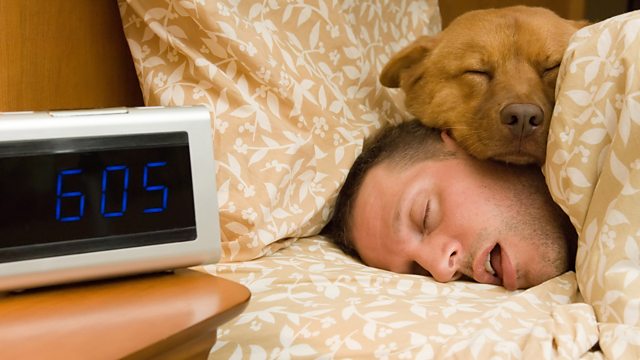
Body Clock Geneticists Win Nobel Prize
Body clock geneticists win Nobel Prize; HiQuake; Norway’s AI retreat; Gravitational wave Nobel winner; 50th Anniversary of Plate Tectonics; Cancer care; Sonic weapon mystery
The Nobel Prize for Medicine has been awarded to three American scientists who discovered the existence of circadian rhythms – the body clock in all living cells. Their research involved fruit flies – but the findings are relevant to humans. The ���˿���’s Tom Feilden spoke to one of the winners, Michael Rosbash, and Claudia Hammond gets some expert tips for a good night’s sleep from sleep scientist Professor Matthew Walker.
Gareth Mitchell talks to Professor Gillian Foulger of Durham University about HiQuake, the world's largest database of human-induced earthquakes. Professor Foulger and her team have so far compiled close to 750 seismic events. Among the surprises is the fact that the US state of Oklahoma is more seismically active than California because of quakes and tremors set off by the local oil and gas industry.
An AI retreat at the location in Norway used for the film Ex-Machina has been the focus of expert discussion on the future of AI. Bill Thompson joined the retreat arranged by Clearleft’s Andy Budd.
The 2017 Nobel prize in physics has been awarded to three US scientists for the detection of gravitational waves. The ripples were predicted by Albert Einstein and are a fundamental consequence of his General Theory of Relativity. The winners, Rainer Weiss, Kip Thorne and Barry Barish, are members of the Ligo/Virgo observatories, which were responsible for the breakthrough. Professor Weiss talks to Ritula Shah.
The theory of plate tectonics is 50 years old. It's as fundamental to understanding the Earth as evolution by natural selection is to understanding life. Roland Pease meets geologists Dan McKenzie, John Dewey and Xavier Le Pichon who played key roles in proving the hypothesis in the late 1960s.
Ideas on improving cancer care in low and middle-income countries have been shared at a conference at the Royal Society of Medicine in London this week. Claudia Hammond speaks to Dr Harrison Chuwa, from Aga Khan Hospital in Dar es Salaam, and Shailesh Shrikhande, from the Tata Memorial Hospital in Mumbai, about some of the solutions.
The United States has removed some of its diplomats from its embassy in Havana, Cuba, after they complained of ailments like hearing loss, dizziness, headaches and nausea. It’s led to speculation that some kind of sonic or acoustic weapon might be responsible. Trevor Cox, professor of acoustic engineering at the University of Salford, discusses the likelihood with Gareth Mitchell.
(Picture caption: Man and his dog comfortably sleeping in © Getty Images)
The Science Hour was presented by Claudia Hammond with comments from science journalist and editor at the Economist Jason Palmer
Producer: Katy Takatsuki
Last on
More episodes
Previous
Next
Broadcast
- Sat 7 Oct 2017 11:06GMT���˿��� World Service Americas and the Caribbean
Podcast
-
![]()
Unexpected Elements
The news you know, the science you don't

